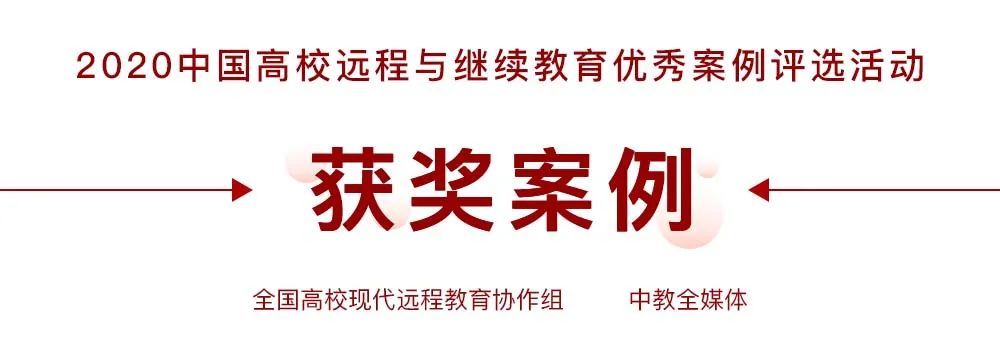
Virtual Experiment Design and Practice for Electronic Technology Courses
(Beijing University of Science and Technology, College of Distance and Adult Education)

Teaching electronic technology courses requires students to understand the working principles of circuits made of discrete components and embedded systems composed of microprocessors. They learn to design circuits hands-on through experiments, ultimately developing system software and hardware. The learning difficulty is high and not easily understood. The virtual experiments cater to the characteristics of distance education students, employing a tiered teaching design that includes operational demonstration videos, program examples, and hands-on exercises, ensuring that students can not only grasp the theoretical knowledge through the virtual experiment platform but also achieve a seamless transition from simulation to practice.

We have established an effective development model for virtual experiments in distance education professional courses; the experimental content is designed in a tiered manner to ensure that students with different learning foundations can learn and gain knowledge, achieving personalized education. We can provide a software and hardware collaborative simulation solution that allows students to focus on system design and software debugging, while the successfully simulated systems can be directly applied in practice without any changes, perfectly realizing the seamless transition from simulation to experiment and from theory to practice. This approach aligns with the professional characteristics of adult education and effectively enhances students’ professional abilities.
Beijing University of Science and Technology’s College of Distance and Adult Education (hereinafter referred to as the College) is responsible for the organization and management of the school’s degree continuing education. Since the launch of distance education in 2003, significant progress has been made through the collective efforts of all faculty and staff. The College has always prioritized the construction of course resources as a key aspect of teaching management, implementing various measures to build and refine the curriculum system.
1. Virtual Experiments as an Important Method for Practical Teaching in Distance Education
The practical component has always been a weak link in modern distance education, especially in engineering disciplines, where the question of “how to conduct experiments online” has become a prominent challenge for the development of distance education. To address this, the College organized a team led by Vice Dean Zhang Mingbo, comprising professional teachers from automation, computer science, and other disciplines alongside frontline teaching management personnel to focus on the construction of virtual experiments for electronic technology courses, scientifically analyzing the learning behaviors of distance education students and reasonably designing relevant virtual experiments to truly enhance student learning outcomes.
Distance education students primarily learn through self-browsing of course materials and interactions between teachers and students on online learning platforms. The large number of distance education students, their wide geographical distribution, significant differences in professional foundations, and asynchronous learning progress distinguish them from full-time education, making traditional experimental models unsuitable for distance education. Forming a team of professional teachers and teaching management personnel to collaboratively develop virtual experiments tailored to the characteristics of distance education and the learning habits of adult students is an effective solution to the practical challenges, particularly in engineering disciplines.
2. Virtual Experiment Design and Practice for Electronic Technology Courses
The team first conducted an analysis of specific student learning behaviors through big data analysis and traditional surveys, based on which professional teachers designed virtual experiments and produced courseware according to course requirements.
Teaching electronic technology courses requires students to understand the working principles of circuits made of discrete components and embedded systems composed of microprocessors. They learn to design circuits hands-on through experiments, ultimately developing system software and hardware. The course content is extensive, concepts are abstract, and theoretical teaching primarily involves explaining concepts and deriving formulas, making it difficult to understand. Traditional circuit experiments require building circuits on a breadboard or soldering board, followed by debugging, measuring, and analyzing performance. If the performance does not meet design requirements, the above process must be repeated until it does. However, if the experiment is slightly complex, issues such as soldering faults, wiring errors, and component damage during circuit assembly can make the experiment time-consuming and labor-intensive, and in severe cases, lead to failure. Therefore, professional teachers developed virtual experiments for distance education students using EDA software as a platform.
The virtual experiments cater to the characteristics of distance education students, employing a tiered teaching design that includes operational demonstration videos, program examples, and hands-on exercises. The virtual experiments use Proteus, an industry software with simulation capabilities, as the experimental platform, and through tiered design of experimental content, they provide differentiated teaching for students with various foundations, ensuring that students can not only grasp theoretical knowledge through the virtual experiment platform but also achieve a seamless transition from simulation to practice. The provided program examples address several key points, requiring students to debug the program to complete the experiment, thereby deepening their understanding of related theoretical knowledge. Once they master the relevant theoretical knowledge, students can proceed to the hands-on practice phase, where open-ended questions guide them to practice independently, further reinforcing the theoretical knowledge learned and fostering their ability to think independently and solve problems.
3. Initial Achievements in Virtual Experiment Construction
Since the team’s establishment in 2017, a relatively mature virtual experiment development model has been formed, and the College plans to promote this model to other professional teams to achieve comprehensive coverage of virtual experiments across disciplines.
The team has completed the design of virtual experiments for three courses: “Basic Circuits,” “Electrical and Electronic Technology,” and “Microcontroller Principles and Interface Technology,” and recorded related videos. Currently, over 5,000 students from undergraduate programs in automation, mechanical engineering, computer science and technology, as well as specialized programs in mechatronics and electrical automation technology, are participating in related virtual experiments, with good learning outcomes.
The construction of virtual experiments for electronic technology courses provides effective solutions to the teaching challenges of practical components in distance education engineering disciplines.
(1) An effective development model for virtual experiments in distance education professional courses has been established.
(2) The experimental content is designed in a tiered manner to cater to adult characteristics, ensuring that students with varying foundational knowledge can learn and gain insights, achieving personalized education.
(3) Virtual experiments are based on EDA software Proteus, which runs smoothly on ordinary PCs, establishing a virtual experiment platform that can be used for electronic technology courses anytime and anywhere.
(4) Virtual experiments utilize interactive peripherals such as switches, buttons, LEDs, and virtual instruments like oscilloscopes, combined with simulation animations to achieve realistic experimental effects. The animation functions of Proteus help students understand the abstract concepts of current flow and circuit operation principles while stimulating their interest and enhancing their learning motivation.
(5) A software and hardware collaborative simulation solution can be provided, allowing students to focus on system design and software debugging, rather than first ensuring that all components and circuit boards in the system are problem-free as in actual work. Once the system prototype is successfully debugged, Proteus’s wiring function can generate PCB layouts, previewing the 3D renderings of the completed system soldering. Successfully simulated systems can be directly applied in practice with almost no changes, perfectly achieving a seamless transition from simulation to experiment and from theory to practice. This approach aligns with the professional characteristics of adult education and effectively enhances students’ professional abilities.
4. Conclusion
Distance education students come from diverse backgrounds with varying levels of ability. Based on the analysis of student learning behaviors, teachers design experimental content in a tiered manner, providing differentiated teaching for students with different foundations. This ensures that students can not only grasp theoretical knowledge through the virtual experiment platform but also achieve a seamless transition from simulation to practice, meeting their professional needs. The College’s virtual experiment development model has achieved certain results, and its teaching effectiveness has been validated. The College is promoting this development model in other courses, and we believe that fully applying virtual experiments in distance education will have significant practical implications for optimizing the course experiment teaching process, refining the theoretical framework of distance education, and fully leveraging the advantages of distance education.

Related Links
Collaboration Group Letter [2021] No. 01 Notice on the Collection of Excellent Cases in China’s Higher Education Distance and Continuing Education
Recent Activity Links
The 2021 (2nd) China Artificial Intelligence Education Conference will be held on April 23-24 in Beijing.
The China Higher Education Network and Continuing Education Innovation Development Training Course will be held on April 27-28 in Shanghai.
The 2021 (7th) Selection of China’s Top 100 Online Education has officially started.
Notice on the 2021 (8th) Annual Selection of China’s E-Learning Industry.
Notice on the Collection of Excellent Cases in China’s Higher Education Distance and Continuing Education.
Notice on the 2021 Annual Selection of Excellent Correspondence Stations in China’s Higher Education.
Notice on the 2021 Annual Selection of Excellent Off-Campus Learning Centers in China’s Modern Distance Education.
Notice from the Ministry of Industry and Information Technology’s Education and Examination Center on the Collection of Manuscripts for “Skills Talk”.

If you find this useful, please click to view
